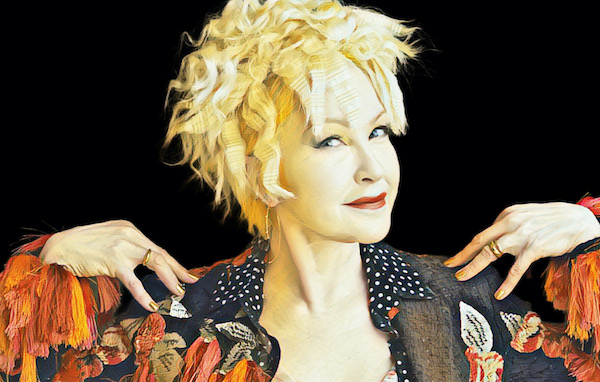As I’ve explained several times, I’ve been a fan of Cyndi Lauper since I was 14 and have followed her career for 40 years, from the moment she sent a message to all women and girls around the globe that Girls Just Want to Have Fun. I saw her live at least twice, I read his biography and I have all his albums. I really love it. But I only managed to see Let the Canary Sing, the documentary about her career, now that I got back from my trip. It has been available on Paramount Plus since the end of May 2024.
The documentary, rich in archival footage of Cyndi before her worldwide fame in 1984, is by director Alison Ellwood, the person behind the excellent film about the Go-Go’s, which makes her one of the greatest experts on the 1980s, covering the biggest pop icons of that decade. Cyndi, as we know, was one of the greatest, being awarded and respected as a songwriter and singer, not so much for her personal life. Now that she has announced her retirement, it is even more curious to understand the art of this “crazy” singer who was anything but crazy.

Let the Canary Sing embarks on Cyndi Lauper‘s youth to contextualize the choices and setbacks of the singer’s forty-year career, whose very original look, wide-ranging voice, and unique timbre made her one of the icons of the already colorful decade. When the album She’s So Unusual exploded, with classics like Girls Just Want to Have Fun and Time After Time, Cyndi was already circulating on radio stations and nightclubs as the lead singer of the band Blue Angel.
At 32 years old, she had experience and maturity so nothing she did came from inexperience, it was thought out and calculated. But if the artist’s appearance is that of a small woman with big lungs, her ability and readiness to fight for her individuality is even greater. In her 2008 book, she talks in detail about everything and everyone, somehow considering herself misunderstood. The Paramount Plus documentary is less detailed but maintains the narrative. As I had already done with the Go-Go’s, the testimonials are vital to make the film interesting, but it praises Cyndi so much that it is a little off-tone.
The title is the answer to everything: even before “being someone”, Cyndi was already fighting the system. Her former manager wanted to prevent her from signing the contract which eventually made her a star and in the long legal process, the judge gave up and said: “let the canary sing”. Yes, it was a victory for her but it also confirms that nothing that came next would be easier. And it wasn’t.


For fans, like me, it’s a delight to see her younger and to hear how Time After Time was written and other details, but even for us when it ends there’s a feeling that it wasn’t exactly like that. Cyndi claims that when faced with the 1990s, fame did not satisfy her and that she wanted to rediscover herself as an artist. What becomes clearer, and in her book not so much, is that we suspected that her romantic and professional relationship with David Wolff was much more relevant than she would still like to acknowledge.
The big problem with Let the Canary Sing is the same as biopics and docs controlled by the artist: there is too much editorialization and a lack of authenticity. And let’s agree that Cyndi Lauper is the synonym for authentic! What’s cool is seeing how she developed her aesthetic sense without anyone’s help, how she embraced feminist and LBGTQ+ causes due to her extremely personal connections, and with that, traveling through her youth is sensational.
Cyndi’s career has been versatile, as has her music collection, and with this documentary, the message is clear that her precision as a producer is what defines her legacy. And it’s worth checking out.
Descubra mais sobre
Assine para receber nossas notícias mais recentes por e-mail.
